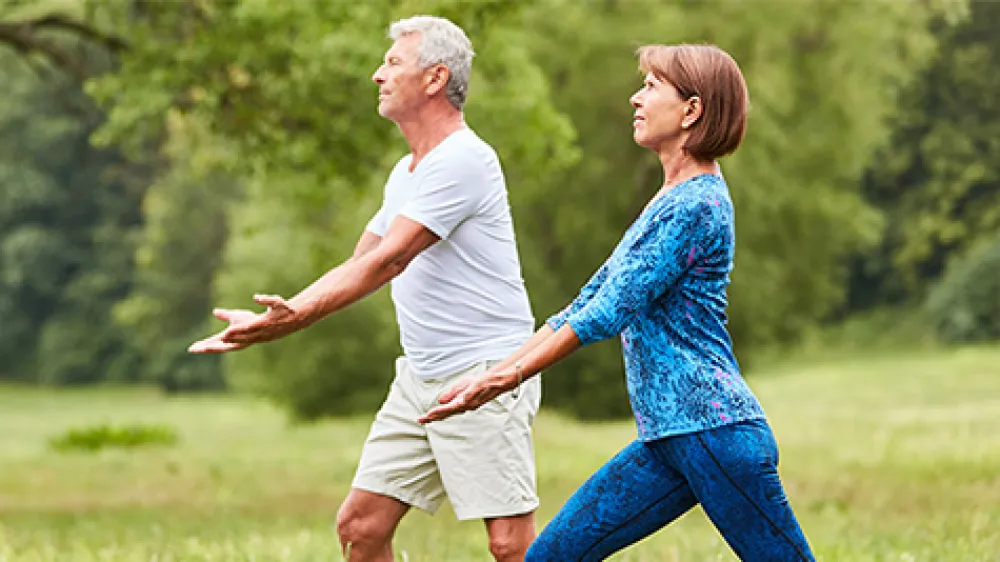Providing your location allows us to show you nearby locations and doctors.
Physical and Emotional Wellness Checklist

08/06/2020
Wellness isn’t just determined by our physical health. Many factors contribute to our overall sense of well-being. Dr. Jodi Friedman, a geriatrician, and Allison Gould, a social worker, both with Nuvance Health’s Center for Healthy Aging, offer this self-assessment checklist you can use to evaluate the health of your mind, body and soul. They also offer strategies for enhancing your total well-being.
Checklist and advice
Emotional health: Can you name your emotional experiences? Are you feeling frustrated, annoyed, angry, sad, desperate, hopeless, excited, hopeful, love, happy, grateful or connected? Are you able to sit with those feelings? If not, how can you learn to better identify and feel OK with your emotional state?
Tip: We need to invite our feelings in. Be sad when you’re sad. Be frustrated when you’re frustrated. You can embrace feelings by realizing emotions frequently change depending on life and current event factors.
Social connections: What are my social connections? Do I feel a sense of contentment from them? If I don’t, what are the barriers? How do I change my connection so I feel more engaged and can feed my spiritual soul?
Tip: This is a very challenging time. You are not alone if you’re feeling disconnected from others. Try to take advantage of the many virtual offerings that can help alleviate some of the isolation that comes with social distancing during the pandemic.
Unfinished business: Is there anything in your life you could examine, let go of and heal from? How is holding on to that conflict affecting your overall sense of wellness?
Tip: There is a lot of evidence that people who carry unresolved conflict have increased stress and emotional discomfort. This can even happen unconsciously.
Brain function: Are you keeping your brain active and stimulated?
Tip: There’s nothing wrong with crosswords and Sudoku, but those activities are not the only things your brain needs as you age. Variety is important. Do puzzles, socialize, draw a picture and never stop learning. Pick a few ways to stimulate your brain, things you enjoy and look forward to doing.
Home environment: How does your home make you feel when you are in it? Does it feel comfortable? Is it safe and can you stay there as you get older? What can you do to feel better in your own home?
Tip: The things you have in your house should bring you a sense of joy, comfort and calmness. If not, figure out what is causing the opposite feelings. Also, prepare for aging in place, from good lighting to decluttering and single-floor living.
Spiritual well-being: How are you doing with the powerful connections that are bigger than yourself, that give you hope or faith? Are there things in your life that bring you true joy and gratitude while feeding your spiritual side?
Tip: Spiritual health is hard to define and is different for so many people. For some, it’s a relationship with a religious affiliation. But you could also have a spiritual relationship with Mother Earth, experience miracles of nature, soul-to-soul connections, etc. The key is you have something spiritual in your life and your relationship is healthy and beneficial.
Sleep: How many hours of uninterrupted sleep are you getting? If you have difficulties, what are your habits and bedtime routines? Can you make changes to improve sleep?
Tip: Get out of the habit of falling asleep watching TV. Give yourself at least an hour break between smartphone and tablet use and when your head hits the pillow. If you wake up in the middle of your cycle and you can’t fall back asleep, resist the urge to get out of bed. Try to relax your body as much as possible. The next best thing to sleep is rest.
Exercise: How often are you getting aerobic exercise? Are you stretching and doing movements that improve strength and balance? How many days a week are you moving in some way?
Tip: Our bodies were meant to move. The challenge some people face is they have an injury or can’t leave their house, so they aren’t moving around as much later in life. Track how often you are strengthening, stretching and getting your heart pumping — and whether you are using exercise to deal with stress. If not, when and where can you start moving more?
Nutrition: How well are you doing with healthy eating and getting a variety of the right kinds of foods such as fruits, vegetables, whole grains, good fats and lean protein?
Tip: Cut down on red meat, carbohydrates and junk food. The Mediterranean diet is highly recommended by Dr. Friedman. Take a multivitamin made for older adults and talk to your physician about your B12 and vitamin D needs. Seek other outlets if you are emotional eating.
For more about the Center for Healthy Aging, visit www.healthquest.org/aging/geriatric-care.aspx and check out the center’s lectures and community programs at www.healthquest.org/wellness.